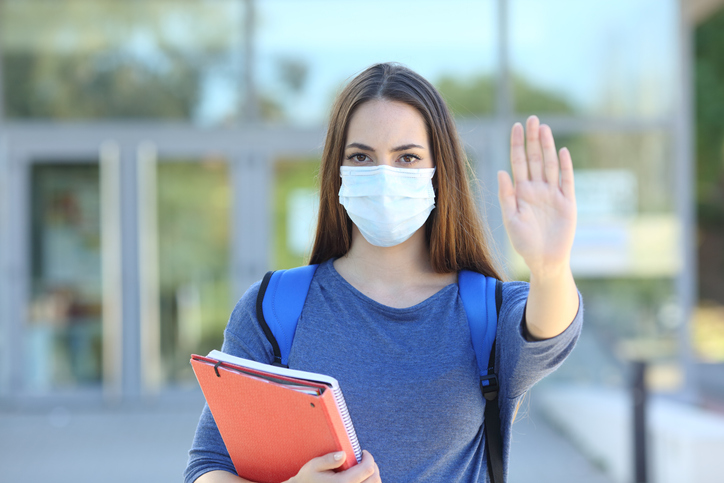Autoimmune diseases and behaviors that lower your immune system make a large population susceptible to COVID-19
Article body
At this time, the U.S. has the most confirmed cases in the world and ranks sixth in the number of total deaths from the virus. With limited information regarding risk factors for severe disease, Robin Farrell, a veteran nurse practitioner, offers her expertise on protecting ourselves and others.
Who is at risk?
Originally, the highest at risk for contracting the disease was the elderly. They still are at risk; however, majority of cases diagnosed have been in the 20-60-year-old population. People who have a known low immune system, whether from a chronic illness or an autoimmune disease, are at the highest risk. This includes but isn’t limited to those who have cancer or have had cancer not in remission, cystic fibrosis, asthma, Chronic obstructive pulmonary disease (COPD), emphysema and recurrent respiratory infections. There are more than 100 autoimmune diseases. Many people with autoimmune diseases carry on life as normal, so you may not even know they have an immunity problem. Autoimmune diseases include diabetes-specifically Type 1, rheumatoid arthritis, Sjogren’s disease, Chron’s disease, Addison’s disease, fibromyalgia, Grave’s disease, Guillian-Barre’, juvenile arthritis, multiple sclerosis, certain thyroid issues, immunodeficiencies, antibody and/or antigen problems, mixed connective tissue disease, Kawasaki’s disease, myositis, ulcerative colitis, vitiligo and many more. Autoimmune disease can affect all and any age, which places them at risk.
Is the college-aged population at risk?
In the American College Health Association National Health Assessment II Survey (2019), students ranked stress (34.2%), anxiety (27.8%), sleep difficulty (22.4%) and depression (20.2%) as the top health issues they feel affects them negatively as individuals and in their academic performance. Stress, poor nutrition, nicotine (cigarettes or vaping) and alcohol consumption, dehydration, sleep deprivation, lack of physical activity or overtraining, excessive exposure to ultraviolet rays from the sun, loneliness and sudden or tragic events can weaken one’s immune system. The young are not immune to getting seriously ill, with 38% of hospitalized patients being between the ages of 20 and 54. Stress and underlying health conditions or lowered immune systems can make younger people susceptible to a severe case of the virus. You also need to be mindful of loved ones, friends, acquaintances or even the neighbor next door who may be at risk, especially if they have immunocompromised conditions or are elderly. We cannot flatten the curve without everyone cooperating and following the guidelines.
If I maintain a six-foot physical distance from others and wash my hands properly, what else can I do?
If you cannot maintain a safe social distance or have to work closely with others, protect yourself with a facemask, even if it is a hand-sewn one or a bandana. Once you return home, leave your shoes outside as they could carry contaminants into your home. Wipe the soles of shoes with disinfectant wipes or spray. Take your clothes off immediately and wash them, as well as shower, with soap and water.
If you must get out for long periods for work or other reasons, make sure to check your temperature before and after work and twice a day when you are off. If any fever, cough, shortness of breath or breathing difficulties or you feel unwell, call a health care provider for assessment. Call first; do not just show up.
How can I help others?
Take advantage of this “secure at home” time to spend with family. Do something fun to pass the time like playing cards or board games. Learn to cook or a have a family cook-off challenge. Read books, talk, play ball or play with the dog. Our pets sense when things are not right and can get anxious as well. If you have an elderly neighbor or someone who has been sick, do a kind gesture like pull their trashcan to the road and back in, take their mail to their door then call and let them know it is there or even fix them a meal and call to let them know it is on their doorstep. Human kindness goes a long way as does looking out for those around you during these uncertain times.
About Robin Farrell
Robin Farrell is an associate clinical professor in Auburn’s School of Nursing. She earned her master’s and Doctor of Nursing Practice from the University of Alabama-Birmingham. Farrell has more than 25 years of experience as a nurse practitioner in college health and nine years educating nurse practitioner students.
Auburn University is a nationally ranked land grant institution recognized for its commitment to world-class scholarship, interdisciplinary research with an elite, top-tier Carnegie R1 classification, life-changing outreach with Carnegie’s Community Engagement designation and an undergraduate education experience second to none. Auburn is home to more than 30,000 students, and its faculty and research partners collaborate to develop and deliver meaningful scholarship, science and technology-based advancements that meet pressing regional, national and global needs. Auburn’s commitment to active student engagement, professional success and public/private partnership drives a growing reputation for outreach and extension that delivers broad economic, health and societal impact.






